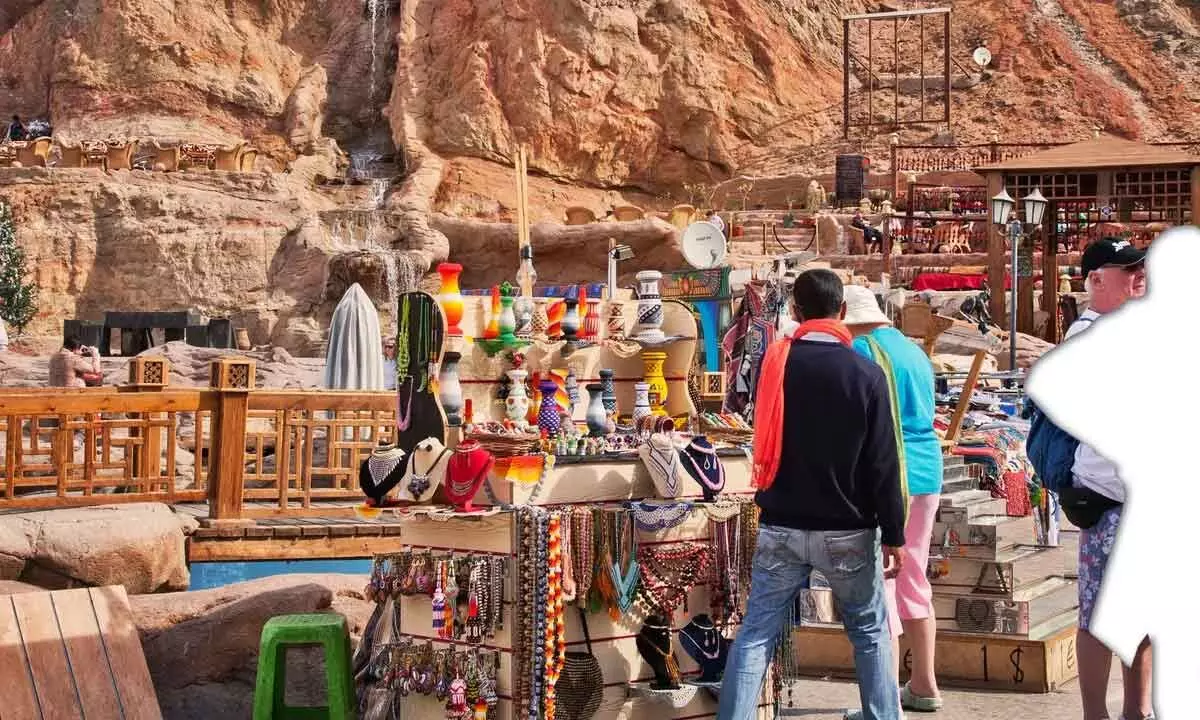Middle East conflict taking tourism sector to the brink
image for illustrative purpose

Tourism brings progress. As one of the biggest sectors in the global economy, it has immense power to bridge cultures, generate new opportunities and promote sustainable development. One should also note that tourism is impacted by interlinked global challenges. Terror attacks will create fear and mark the country as a dangerous tourist destination, destroys infrastructures like transportation and tourist facilities, results in loss of jobs because of a slump in tourist arrivals.
Russia’s military offensive in Ukraine represents a downside risk for international tourism. It has exacerbated already high oil prices and transportation costs, increased uncertainty and caused a disruption of travel in Eastern Europe. Russia and Ukraine represent a combined three per cent of global spending on international tourism, as of 2020. A prolonged conflict could translate into a loss of $ 14 billion in tourism receipts globally in 2022. Both markets are significant not only for the neighboring countries but also for European sun and sea destinations. The Russian market has gained significant weight during the crisis in long-haul destinations like Maldives, Seychelles and Sri Lanka.
The war in Ukraine now poses major challenges for tourism businesses still licking their wounds from the pandemic. The conflict could hold back the fragile tourism recovery and add uncertainty about future prospects and investment. The Russian outbound market, worth EUR 32.5 billion to destination markets pre-pandemic, has a higher ranking in countries like Estonia, Finland, Latvia, Lithuania and Poland, where travel restrictions are in place. Even destinations that remain open to Russian airlines – such as Israel and Turkey – will be affected as Russian tourists are challenged by restrictions on card payments and volatility in the price of the Ruble.
Industry experts want assurances from Russian officials that travel and tourism connect people and bring the world closer through shared experiences, cultural awareness and community building. It provides jobs, spurs regional development, and is a key driver for socio-economic progress. Of course, Russia has the sovereign right to choose between the emerging multi-polar and an isolated world. Russia’s membership has been stripped off international organizations. The Executive Council has proposed a possible suspension of Russia’s membership from the United Nations World Tourism Organization.
At the domestic level, hostilities between the Palestinians and Israelis have, intermittently, discouraged tourists for the past 40 years. Besides, as Israel is located in the heart of the Middle East, tourists tend to avoid visiting it during every major crisis in the region. The latest conflict comes at a time when Indian airlines are expanding internationally so as to tap the growing aspirations of Indian travellers, who are keen to visit overseas destinations in the short-to-medium range.
There is so much negativity right now that people are postponing their travel plans. There are talks of a charter flight from Israel, but there is no surety on this count. The instability in the region is also forcing travellers in Europe to do a rethink of their plans, although there have not been significant cancellations or postponements to Europe, as of now.

